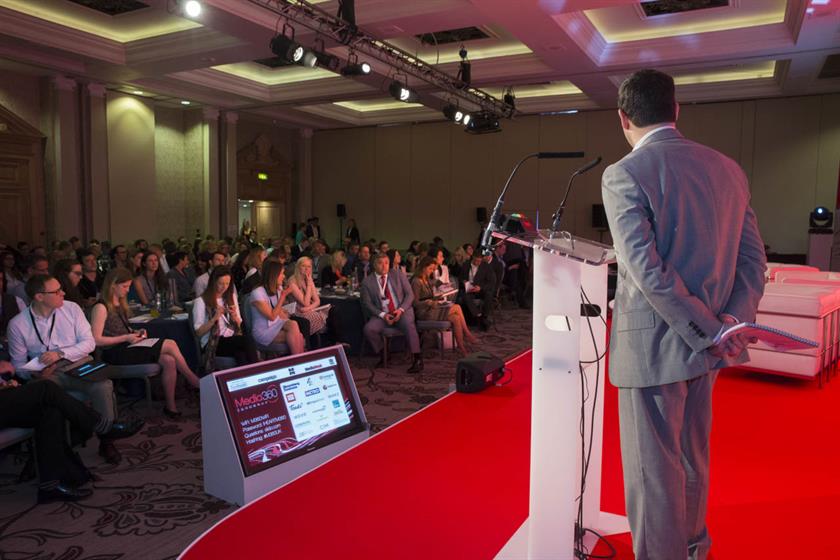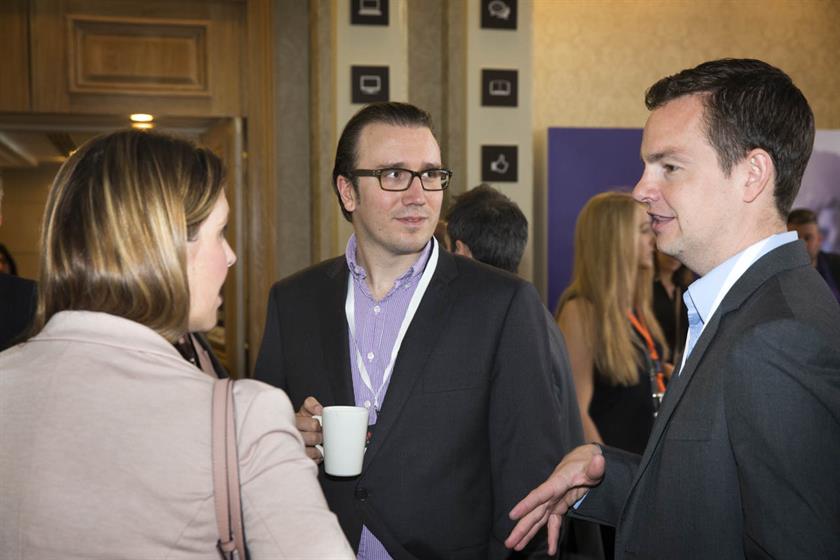Innovation was a recurring theme at last week’s two-day Media360 event in Brighton.
Lord Michael Dobbs, the executive producer of House Of Cards who wrote the original novel, cited Netflix’s reported $100 million gamble on an ad-free, long-form content, subscriber-only offering.
Dobbs noted that Netflix, founded as a mail-order DVD subscription service in 1999, had been the equivalent of Blockbuster. But since it turned to premium streaming, the company is now one of the most popular video services in the world, generating $5.5 billion in annual sales.
Elsewhere, Chantal Coady told of how she had identified a gap in the market for her luxury Rococo Chocolates brand after experiencing a "lack of love" while selling confectionery at Harrods.
Driven by a clear vision, Coady, then just 24, used the family home – with the blessing of her mother – as collateral for the new venture. Today, Rococo has a turnover in excess of £3 million.
The power that comes from a sense of purpose was highlighted by the founder of The Branded Sports Group, Rod Connors, who attributed the success of Nike to having "two guys on a mission". For him, creativity and sheer bloody-mindedness are essential for all true innovators.
But not all innovation comes from a clear strategy, as Will Butler-Adams, the managing director of the fold-up-bike company Brompton, proved. His attempt to maintain innovation has resulted in the establishment of a "fuck-it fund". Designed for the exploration of new ideas requiring up to £50,000 in initial investment, the concept caught the imagination of the 260 delegates at Media360.
'For Connors, creativity and sheer bloodymindedness are essential for innovators'
The benefits of giving enough space to experiment was echoed by Dan Germain, the head of brand and creative at Innocent. He showed how concerns that the company had become too corporate since being acquired by Coca-Cola were unfounded.
Having hosted Fruitstock, a festival that grew bigger than Glastonbury with more than 160,000 people in the summer of 2007, Germain revealed that Innocent had just held a small event for a few thousand people, strictly off-grid and cut off from the web, last month. He is unsure whether they would do it again but said the experience had been "interesting" and typical of the sense of experimentation still inherent in Innocent.
Also speaking was Ounal Bailey, the brand director at Britvic, who pointed out that her company had changed "almost beyond recognition" during the eight years she has worked there.
Acquisitions in Ireland and France have helped to expand Britvic’s footprint, introducing brands such as Teisseire (now the leading syrup brand in France) to the portfolio, while new developments for the kids’ drink Fruit Shoot have opened up the company to the US and India.
Driven by the "slightly scary" ambition to be the "most dynamic, creative and admired soft-drinks company in the world", Bailey said the ability to innovate to "meet the world of tomorrow" had been "absolutely critical". She pointed to one of Britvic’s most significant UK launches in recent times, Robinsons Squash’d – a super-concentrate that had opened up an entirely new sector.
Bailey believed that true innovation requires a catalyst – "sometimes internal, sometimes external". Furthermore, it is aided by a team removed from the day-to-day business who have a depth of passion, commitment and "real resilience".
In words that resonated with many delegates in the room tasked with managing the sort of transformation that has become the norm for those navigating the digital revolution, Bailey acknowledged how hard it can be to enact change.
"Big businesses are often geared up for maintaining the status quo," she said. "They are focused on delivering more efficiency in what they already do."
The formation of her team of "proactive agitators in the business" were able to think about the company's strategic needs in the mid to long term, and not just the next market update. Sales had not been the starting point, but rather the unmet needs of people in the target group of kids and families.
"The real shift here was putting this understanding ahead of starting from a brand-centric perspective," Bailey explained. "It allowed for a more human and more expansive approach to unlocking new opportunities and new brands."






